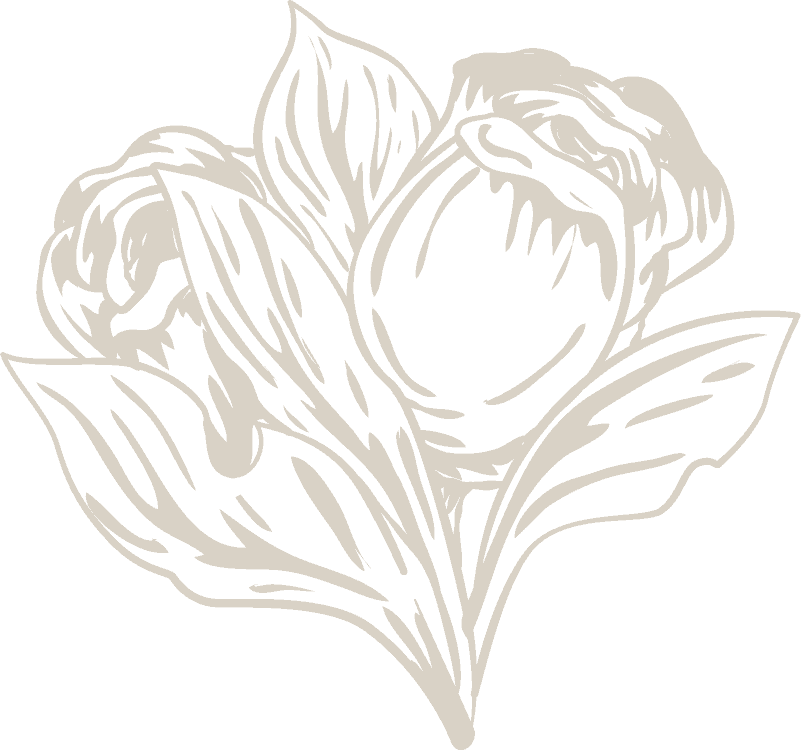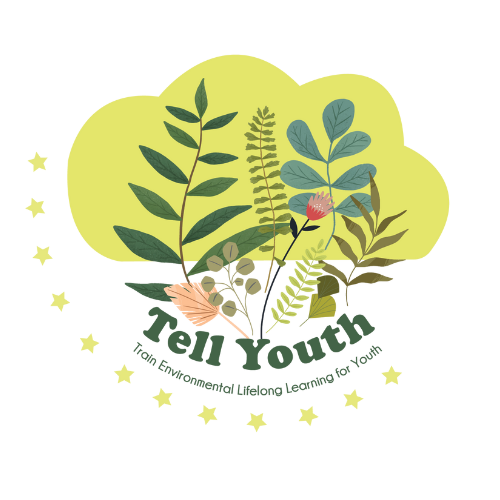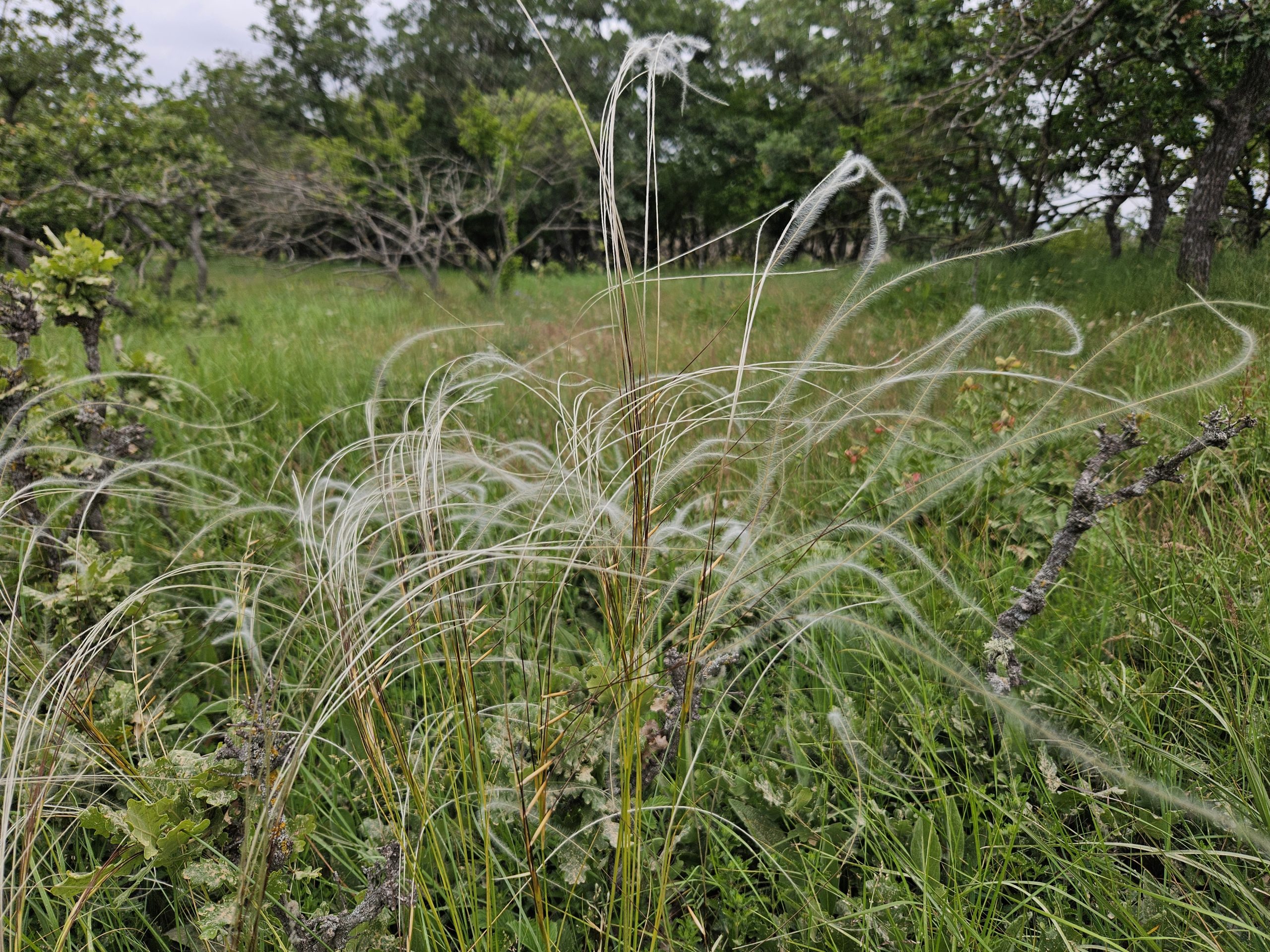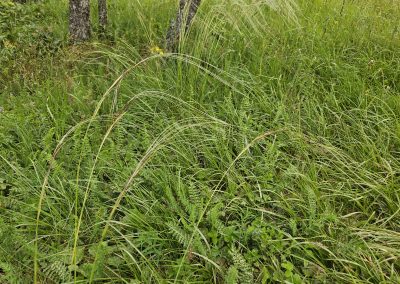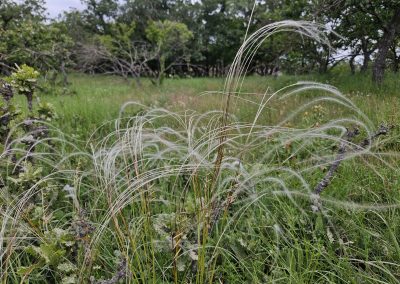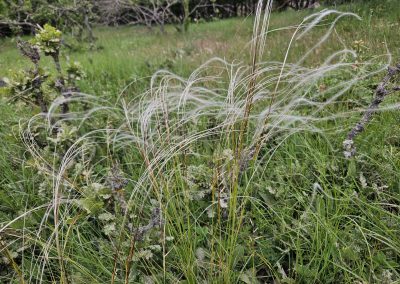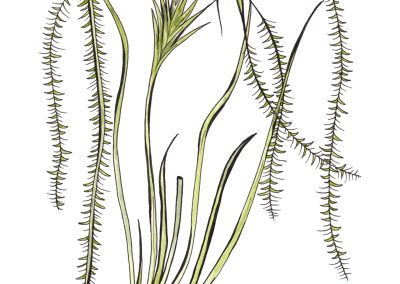Stipa pennata
Scientific description
Phylum: Angiospermatophyta (Magnoliophyta)
Class: Monocotyledonatae (Liliatae)
Order: Graminales (Poales)
Family: Gramineae (Poaceae)
Common name: feather grass, downy grass.
Origin: Eurasian continental.
Description:
Vigorous, perennial, herbaceous plant forming dense tufts. Deep taproot; stems 50–100 cm tall. Slender, stem-length, green leaves. Uniflorous spikelets arranged in panicles. Lower blade hairy at base; hairy awn up to 35 cm, remaining attached to caryopsis, aiding wind dispersal.
Propagation: by seed.
Ecology:
Grows in meadows, on sunny, dry hills from lowlands to hills; prefers calcareous substrates.
Uses:
Low forage value. Ornamental grass for its inflorescences; used in floral arrangements and decorative works. Hardy when dried.
Hazard: May cause allergies due to the down.
Încrengătura: Angiospermatophyta (Magnoliophyta)
Clasa: Monocotyledonatae (Liliatae)
Ordinul: Graminales (Poales)
Familia: Gramineae (Poaceae)
Denumire populară: colilia.
Originea: euroasiatică continentală.
Descrierea:
Plantă ierboasă, perenă, viguroasă, cu tufă densă. Rădăcină pivotantă adâncă; tulpini de 50–100 cm. Frunze subțiri, lungimea tulpinii, verzi. Spiculețele uniflore dispuse în panicule. Paleea inferioară păroasă, aristă păroasă de până la 35 cm, rămâne lipită de cariopsă pentru dispersie anemocoră.
Înmulțire: prin semințe.
Ecologie:
Crește în pajiști, pe coline însorite și uscate, de la câmpie la dealuri; preferă substrat calcaros.
Utilizare:
Slab furajeră. Plantă ornamentală pentru inflorescențe, folosită în aranjamente florale și lucrări decorative; rezistentă la uscare.
Pericol: Poate provoca alergii datorită pufului.
Φύλο: Angiospermatophyta (Magnoliophyta)
Κλάση: Monocotyledonatae (Liliatae)
Τάξη: Graminales (Poales)
Οικογένεια: Gramineae (Poaceae)
Δημοφιλές όνομα: κολλία, φτερόχορτο.
Καταγωγή: Ευρασιατικές ηπειρωτικές περιοχές.
Περιγραφή:
Πολυετές, ανθεκτικό, ποώδες φυτό με πυκνούς θάμνους. Ρίζα βαθιά, βλαστοί 50–100 cm. Λεπτά πράσινα φύλλα μήκους βλαστού. Μονόμορφοι σπόροι σε πανικόμορφες ταξιανθίες. Κατώτερη αιχμή τριχωτή, με μακριά τριχωτή αρίστη 35 cm, παραμένοντας συνδεδεμένη με καρπό για διάδοση με τον άνεμο.
Πολλαπλασιασμός: με σπόρους.
Οικολογία:
Αναπτύσσεται σε λιβάδια, σε ηλιόλουθες ξηρές πλαγιές, από πεδιάδα έως λόφους, σε ασβεστολιθικά εδάφη.
Χρήσεις:
Μικρή αξία ως τροφή. Διακοσμητικό φυτό λόγω όμορφων ταξιανθιών, χρησιμοποιείται σε ανθοκομικές ρυθμίσεις και διακοσμητικά έργα. Ανθεκτικό μετά την ξήρανση.
Κίνδυνος: Μπορεί να προκαλέσει αλλεργίες λόγω του πούπουλου.
Phylum : Angiospermatophyta (Magnoliophyta)
Classe : Monocotyledonatae (Liliatae)
Ordre : Graminales (Poales)
Famille : Graminées (Poaceae)
Noms communs : colilie, herbe plumeuse.
Origine : Eurasie continentale.
Description :
Plante vivace, herbacée et vigoureuse, formant une touffe dense. Racine pivotante profonde; tiges 50–100 cm. Feuilles fines, de la longueur de la tige, vertes. Épillets uniflores disposés en panicules. Limbe inférieur velu, arête plumeuse de 35 cm, reste attachée au caryopse pour dispersion par le vent.
Multiplication : par graines.
Écologie :
Dans notre pays, pousse dans les prairies et collines ensoleillées et sèches, des plaines aux régions collinaires; préfère les sols calcaires.
Usages :
Faible valeur fourragère. Herbe ornementale pour ses inflorescences, utilisée en arrangements floraux et décoratifs; très résistante une fois séchée.
Danger : Peut provoquer des allergies à cause du duvet.
Creative writing inspired by Stipa pennata
Written by Tiberius Sauca
Stipa pennata
Long ago, when the world was still so young and the nomadic people’s sky god, Tengri still walked the earth, a lovestruck girl waited on the endless steppe with a great purpose. Her lover, a great warrior, had ridden to battle, promising to return to her when the feather grass turned gold. As the seasons passed the girl still stood among the whispering grasses waiting for her brave lover to return but, as she waited and waited, the grass seemed to never turn, and she began crying, her tears falling like the morning dew, watering the fields around her.
The spirits of the wind took notice of this, and while pitying her, they wove her sorrow into the land. They took her hair and made majestic golden strands from it, then her body they made into the slender stem of feather grass, swaying eternally in the breeze. Nomads say that on quiet nights, if you listen closely, the steppe still murmurs the girl’s name. The Cossacks, riding through the golden seas of stipa pennata, warn never to pluck it for it is part of the girl’s ancient spirit, and to disturb her is to invite the wind’s wrath. Yet they also say that when a lone wanderer is lost, the feather grass bends to guide them home, for her heart remembers kindness.
And when the sun finally sets, setting the steppe aflame, old women whisper: “See how the stipa pennata shines? That is not the grass, that is the girl’s love, still waiting, still golden.”
